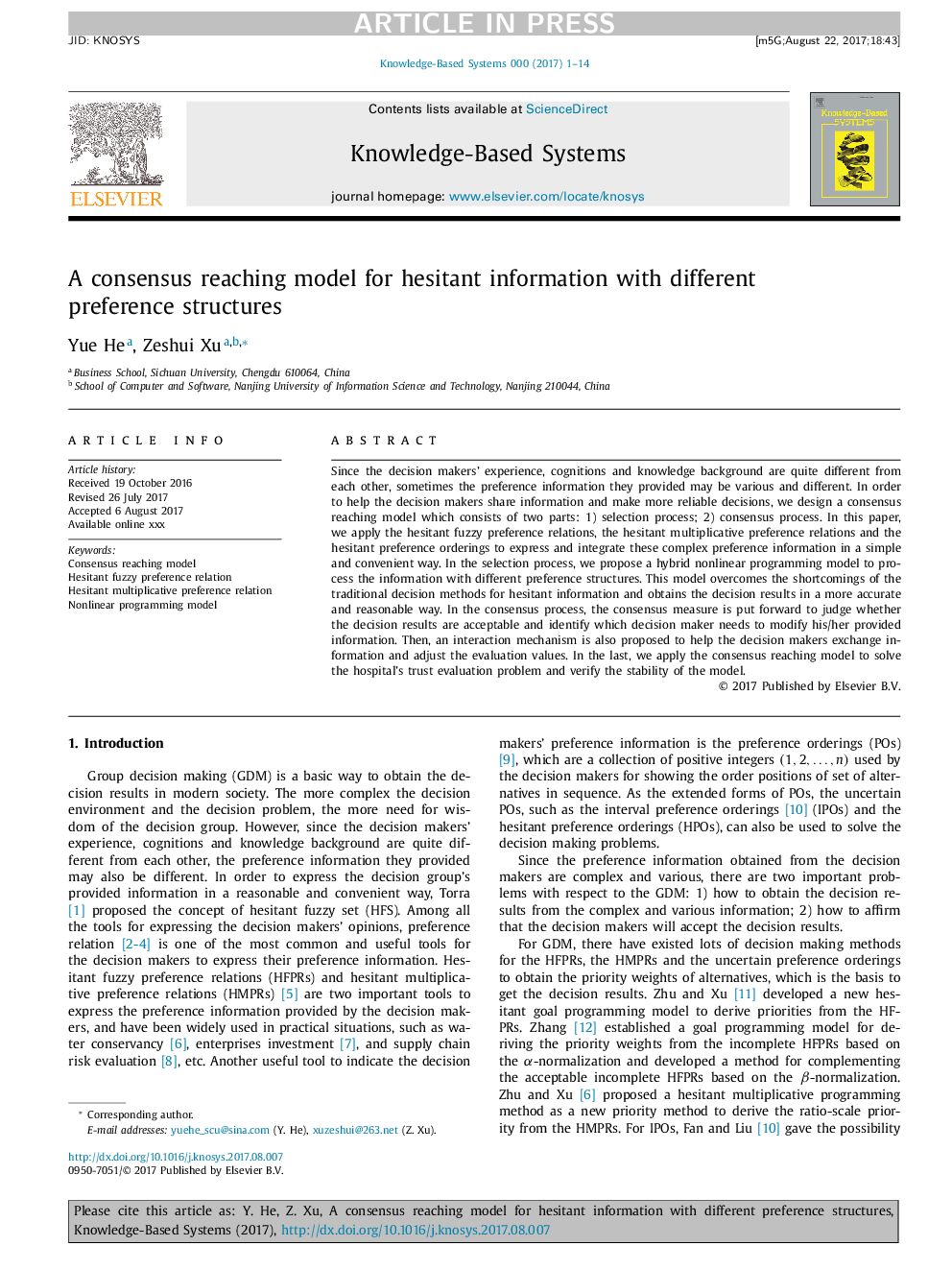| Article ID | Journal | Published Year | Pages | File Type |
|---|---|---|---|---|
| 4946054 | Knowledge-Based Systems | 2017 | 14 Pages |
Abstract
Since the decision makers' experience, cognitions and knowledge background are quite different from each other, sometimes the preference information they provided may be various and different. In order to help the decision makers share information and make more reliable decisions, we design a consensus reaching model which consists of two parts: 1) selection process; 2) consensus process. In this paper, we apply the hesitant fuzzy preference relations, the hesitant multiplicative preference relations and the hesitant preference orderings to express and integrate these complex preference information in a simple and convenient way. In the selection process, we propose a hybrid nonlinear programming model to process the information with different preference structures. This model overcomes the shortcomings of the traditional decision methods for hesitant information and obtains the decision results in a more accurate and reasonable way. In the consensus process, the consensus measure is put forward to judge whether the decision results are acceptable and identify which decision maker needs to modify his/her provided information. Then, an interaction mechanism is also proposed to help the decision makers exchange information and adjust the evaluation values. In the last, we apply the consensus reaching model to solve the hospital's trust evaluation problem and verify the stability of the model.
Keywords
Related Topics
Physical Sciences and Engineering
Computer Science
Artificial Intelligence
Authors
He Yue, Xu Zeshui,
